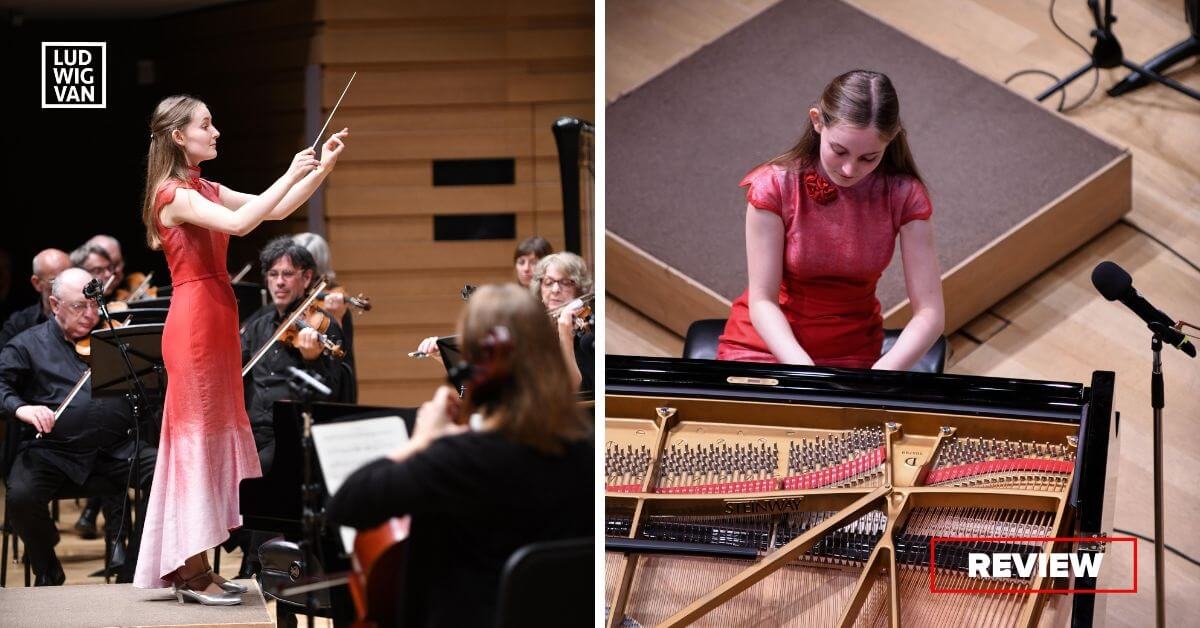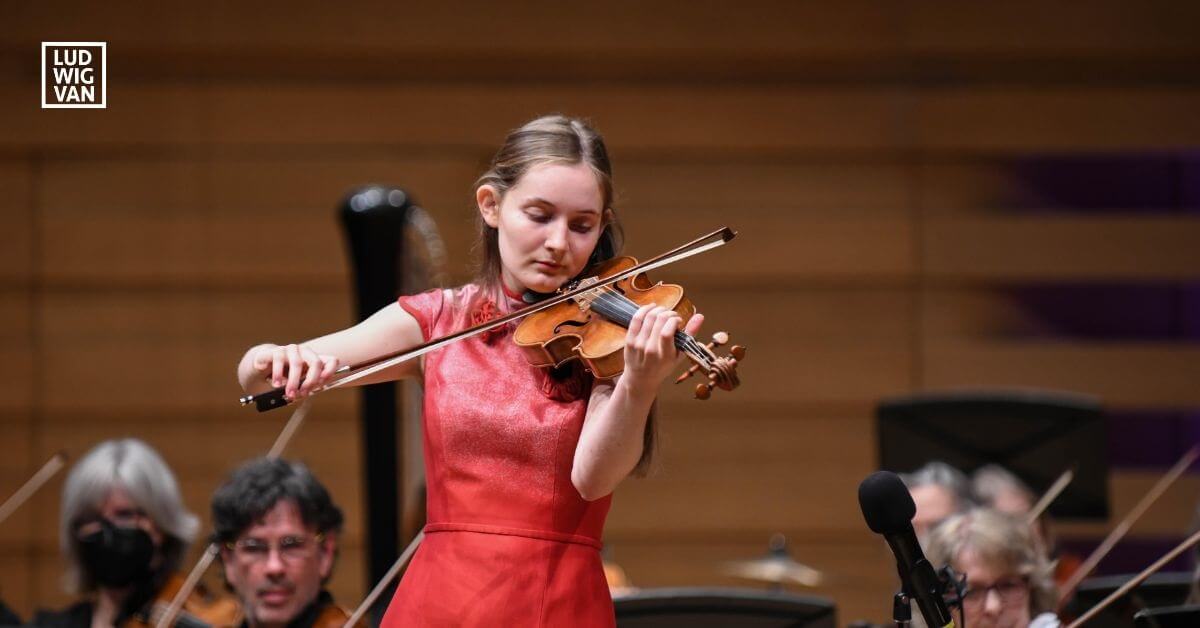
We are still in the early days of the 2022-23 music season in Toronto, and already it’s proving to be a memorable one. The Toronto Symphony wowed its audience with pianist Bruce Liu and a fabulous Scheherazade earlier this week. On Sunday, it was announced that the 2022 Glenn Gould Prize is going to Venezuelan conductor Gustavo Dudamel, a most deserving winner.
A mere hour later, a packed Koerner Hall got to experience the artistry of another brilliant musician, the pianist/violinist/composer Alma Deutscher.
Alma Elizabeth Deutscher is no ordinary musician. Born in 2005 to a British mother and an Israeli father, little Alma started playing the piano at age two, the violin at three, and composing at four. By ten, she composed her first full-length opera, Cinderella, which received rave reviews when it premiered in Vienna in 2016. She was called “Little Mozart,” a moniker she hated. She was the subject of an hour-long documentary on the BBC, and her YouTube channel has been viewed more than 9 million times.
She made her Canadian debut four years ago in Toronto, in a special concert in honour of the distinguished 12th Glenn Gould Prize. It’s fitting that she’s marking her return in another concert celebrating the 14th Glenn Gould Prize.
The concert was free, but pre-booking was required. By Sunday, all available tickets had already been given out. It should be said that there were some empty seats, likely due to no shows. Never mind — it was their loss! Now 17, Deutscher is past the wunderkind phase, yet there’s still an air of child-like innocence about her, especially in the way she speaks that’s quite disarming.
The program featured her own compositions — two movements from her violin concerto in G Minor, and the Adagio from her piano concerto in E-flat Major. Also very interesting were selections from her opera Cinderella, and the sneak previews of her upcoming opera, The Emperor’s New Waltz, which will premiere a few months from now. Deutscher did triple-duty — as piano soloist, violin soloist, and conductor. She led the Glenn Gould Festival Orchestra, basically a large pickup orchestra gathered for the occasion.

For those not familiar with Deutscher the composer, her works bear no resemblance to the new music that’s being composed today. Simply put, her pieces harken back to a bygone era, the time of the Classical and Romantic periods of Mozart and Schubert. Despite her achieving a lot of media attention and playing to sold-out houses, Deutscher is not taken seriously by contemporary composers. From the academically trained composers I’ve spoken with, they mostly feel that Deutscher’s output is derivative, unoriginal, and banal, albeit entertaining to an undiscerning public.
Aware of the criticisms levelled against her, Deutscher spoke to the audience at length about this issue. She basically said — and I’m paraphrasing — that rather than composing to fit in with the current style of dissonance, she prefers to focus on beauty. Anyone interested in the details of her musical worldview should watch her short and very illuminating video, “Are Melodies Unique?” on YouTube.
Apart from a few caveats, I do feel Deutscher makes a strong case. Perhaps the best answer to the debate was the most interesting item on the program, a preview of her new opera, Des Kaisers neue Walzer, which will receive its premiere in Salzburg next March. Canadian soprano Vania Chan sang Pippa’s Aria with all the sparkling coloratura and vivid stage presence one would want, albeit with a voice a size too small for Koerner Hall. Noah Kosta, billed as a “bari-tenor,” has a non-operatic — some might say naturally untrained — voice, but he suited the character he played well. The very receptive audience gave Deutscher, the singers and the orchestra repeated standing ovations.
My final thoughts? There will always be divided opinions regarding the virtues of originality vis-à-vis tradition. Research in recent years in neuroscience has demonstrated that when it comes to perceptions of music, the human brain is designed to process patterns and repetitions, both attributes of tonality. On the other hand, our brains have problems retaining such styles as 12-tone, due to the absence of patterns and repetitions, let alone melodies. Originality may be a virtue in new music and academia, one could make a case that it’s tradition that brings audiences to the concert hall. Chacun à son gout…
#LUDWIGVAN
Get the daily arts news straight to your inbox.
Sign up for the Ludwig van Daily — classical music and opera in five minutes or less HERE.
- SCRUTINY | Opera Atelier’s All Is Love Makes Triumphal Return - April 15, 2024
- SCRUTINY | From The Heart: Ema Nikolovska And Charles Richard-Hamelin Offer Unique Program At Koerner Hall - March 26, 2024
- SCRUTINY | The Glenn Gould School Spring Opera Presents A Superb Dialogues Des Carmélites - March 22, 2024



